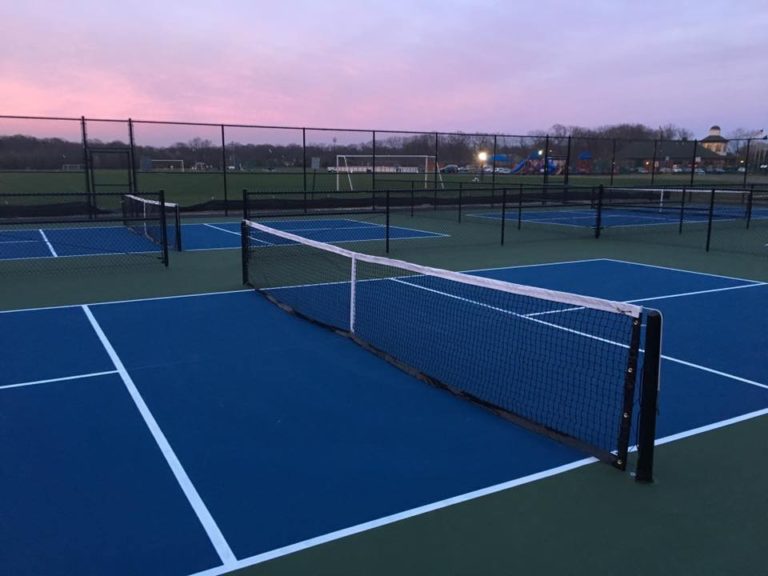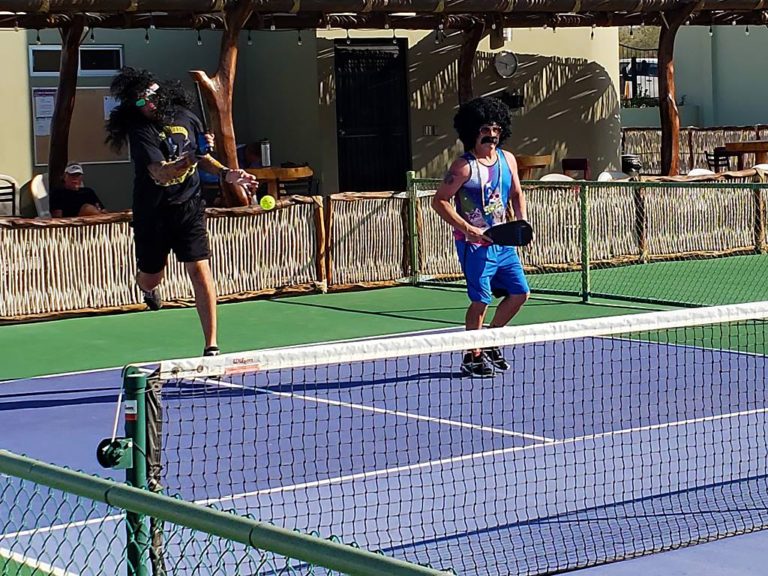Pickleball has rapidly grown in popularity over the past few years, and with good reason. However, while pickleball can be a relatively simple game to pick up, it’s important to understand the nuances and intricacies of the game to truly excel. One of the most crucial aspects of pickleball is partner communication. In this article, we’ll explore why communication is so important in pickleball and how to effectively communicate with your partner to take your game to the next level.
What is Pickleball Partner Communication?
Pickleball partner communication refers to the act of effectively communicating with your doubles partner during a game of pickleball. This can include both verbal and non-verbal communication techniques. Effective communication between doubles partners can lead to better teamwork, improved strategy, and ultimately, more success on the court.
The Importance of Communication in Pickleball
Communication is essential in any team sport, and pickleball is no exception. In pickleball, effective communication can help you and your partner anticipate each other’s movements, react to shots more quickly, and avoid collisions. Additionally, communication can help you develop a stronger sense of trust and understanding with your partner, which can lead to better overall teamwork.
Understanding Your Partner's Playing Style
Before you can effectively communicate with your partner, it’s important to understand their playing style. Do they prefer to play at the net or stay back at the baseline? Are they aggressive or more defensive? By understanding your partner’s playing style, you can adjust your own playing style to complement theirs and communicate more effectively on the court. Simply ask your partner how they like to play or watch them carefully and learn how they play!
Developing a Communication Plan
It’s important to have a communication plan in place before you step onto the court. This plan should include clear and concise language, hand signals, and non-verbal cues that you and your partner can use to communicate during the game. By having a plan in place, you can avoid miscommunications and stay focused on the game.
Verbal Communication Techniques
Verbal communication is perhaps the most common form of communication in pickleball. Here are a few techniques to help you communicate effectively with your partner:
Using Clear and Concise Language
When communicating with your partner, it’s important to use clear and concise language. Avoid using complex phrases or terminology that your partner may not understand. Instead, use simple phrases that convey your message clearly and quickly.
The Importance of Tone
Tone is an important aspect of verbal communication in pickleball. By using an upbeat and positive tone, you can motivate your partner and keep them engaged in the game. Conversely, a negative or critical tone can be discouraging and may lead to decreased teamwork and communication.
Utilizing Simple Phrases and Hand Signals
Simple phrases and hand signals can be extremely effective in communicating with your partner during a game of pickleball. For example, using phrases like “yours” or “mine” can quickly indicate who should take the next shot. Similarly, hand signals can be used to indicate the direction of the shot or where you want your partner to move on the court.
Non-Verbal Communication Techniques
In addition to verbal communication, non-verbal communication can also be a powerful tool on the pickleball court. Here are a few techniques to help you communicate non-verbally with your partner:
Paying Attention to Your Partner's Body Language
Your partner’s body language can give you valuable clues about their intentions and reactions. By paying attention to their movements and gestures, you can anticipate their next move and adjust your own position accordingly.
Using Eye Contact
Eye contact is another important non-verbal communication technique in pickleball. By making eye contact with your partner, you can quickly and easily communicate without having to say a word. This can be particularly useful when you need to make a quick decision on the court.
Common Communication Mistakes to Avoid
While effective communication can be a game-changer in pickleball, there are also common communication mistakes that players should avoid. These include:
Using negative or critical language
Failing to listen to your partner
Over-communicating and causing confusion
Failing to establish a communication plan
By avoiding these common communication mistakes, you can ensure that your communication with your partner remains effective and productive.
Conclusion
Effective communication with your partner is crucial for success in pickleball. By understanding your partner’s playing style, developing a communication plan, and utilizing both verbal and non-verbal communication techniques, you can improve your teamwork, strategy, and overall performance on the court.
FAQ's
Can communication really make that big of a difference in pickleball?
Yes, effective communication can help you anticipate your partner’s movements, react to shots more quickly, and avoid collisions, ultimately leading to better teamwork and success on the court.
What are some common phrases used in pickleball communication?
“Yours,” “mine,” “switch,” “got it,” and “stay” are all commonly used phrases in pickleball communication.
How can I improve my non-verbal communication in pickleball?
By paying attention to your partner’s body language and using eye contact, you can quickly and easily communicate without having to say a word.
Is it ever too late to establish a communication plan with my partner?
It’s never too late to establish a communication plan with your partner. In fact, it’s better to establish one late than never at all.
What should I do if my partner and I are still having trouble communicating effectively?
If you and your partner are still struggling to communicate effectively, consider taking a few lessons or practicing together outside of a game setting to improve your teamwork and communication.




